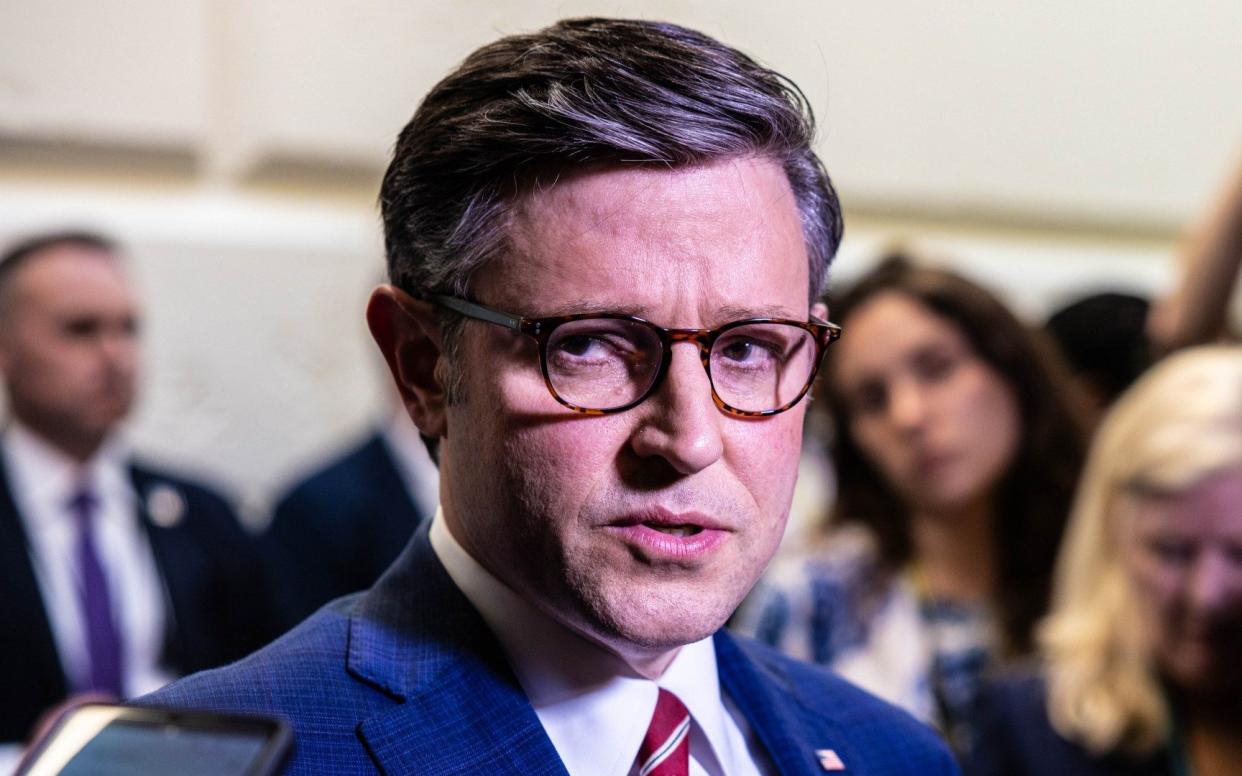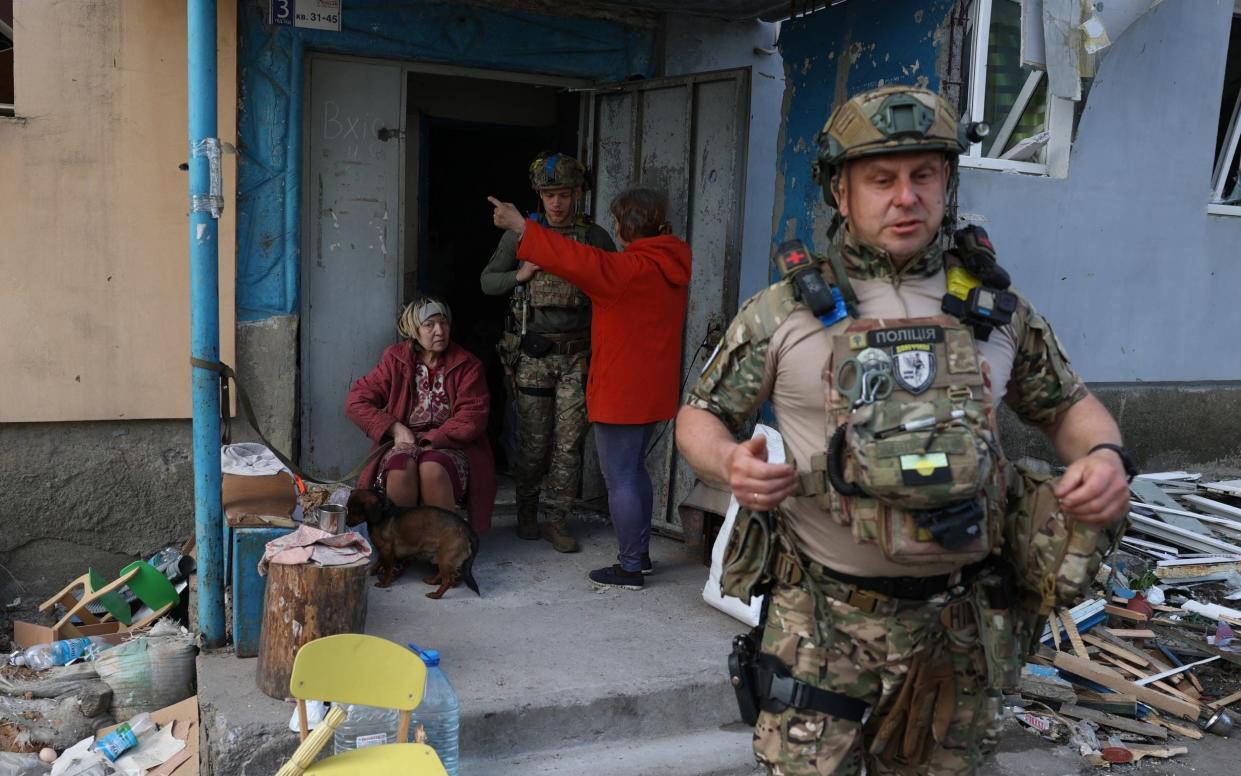US House to vote on Israel and Ukraine aid bills

The Speaker of the US House of Representatives said he would hold a vote on aid for Ukraine and Israel, in a move that could resolve a months-long logjam in Congress.
Mike Johnson, who is facing a rebellion from hardline Republicans over his willingness to hold a vote on support for Ukraine, said he would bring a package before the House this week.
However, he said the package would differ from the $95bn (£76bn) supplemental proposed by Joe Biden, which has already been agreed by the Senate.
As he left a closed-door meeting of Republicans on Capitol Hill on Monday night, Mr Johnson said he would hold four separate votes in the House, allowing congressmen to vote to support some countries and not others.
I have just spoken with the @HouseGOP conference on my plan to address national security supplemental legislation on the growing security crises.
This week, we will consider separate bills with a structured and germane amendment process to:
•Fund our ally Israel
•Support…— Speaker Mike Johnson (@SpeakerJohnson) April 15, 2024
One vote will focus on US aid for Ukraine, which has stalled in recent months after Congress refused to renew Mr Biden’s mandate to send American munitions to Kyiv.
A second will deal with support for Israel, which had been attached to the Ukraine funding in the White House’s own supplemental package.
Congress is under increasing pressure to continue its support for Israel since Iran launched an unprecedented attack on military targets there on Saturday.
A third vote could authorise support for Taiwan, where the Biden administration has said it is concerned about Chinese military buildup, and other allies.
A fourth will address other measures that are popular with Republicans and had been mooted as a way to sweeten the package for its critics.
Speaking after the meeting, Mr Johnson said the “overall concept” of his plan was the same as Mr Biden’s package.
“It’s the same places that the funding would be sent, and you’ll see the House’s take on it,” he said.
The plan could resolve a congressional holdup in foreign military aid that began in October, when Mr Biden’s first supplemental plan was rejected.
The US president requires the continued support of Congress to send Ukraine and other countries weapons from American military stockpiles.
However, some Republicans have signalled they will not vote for a compromise package between the GOP-controlled House and the White House.
Mr Johnson is already facing a rebellion from some Republican representatives, led by the hardline conservative Marjorie Taylor Greene. Some have called for him to be ousted from the Speaker’s chair, just months after Kevin McCarthy was removed by a similar rebellion in October.
Mr Biden and his officials have warned that without further aid, Ukraine will lose its war against Russia.

Gen Christopher Cavoli, the head of the US European Command, said last week that Ukraine is currently outgunned by Russia by five munitions to one.
“The Russians fire five times as many artillery shells at the Ukrainians than the Ukrainians are able to fire back,” he told Congress.
“That will immediately go to 10 to one in a matter of weeks. We’re not talking about months. We’re not talking hypothetically.”
Last week, David Cameron, the Foreign Secretary, visited Washington to urge sceptical Republicans to back a Ukraine aid package.
“Future generations may look back at us and say, did we do enough when this country was invaded by a dictator trying to redraw boundaries by force?” he said in a joint press conference with Antony Blinken, the US Secretary of State.
“Did we learn the lessons from history? And did we do enough?”
Mr Johnson’s decision for the House to vote on a different formulation of the package to the House means its passage through the Democrat-controlled Senate is not secured.
Both Chuck Schumer, the Senate majority leader, and Mitch McConnell, the minority leader, had urged Mr Johnson to leave the package as it was agreed by the Senate.
Donald Trump, the Republican presumptive nominee for this year’s election, has opposed more aid to Ukraine and promised to end the war “in one day” if he is reelected.
His supporters in Congress have led the charge against Mr Johnson, and argue the US government should be more concerned with domestic problems than foreign wars.


